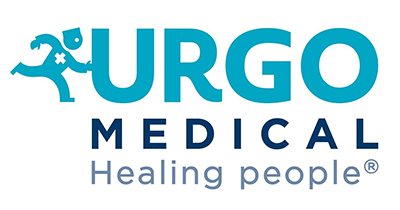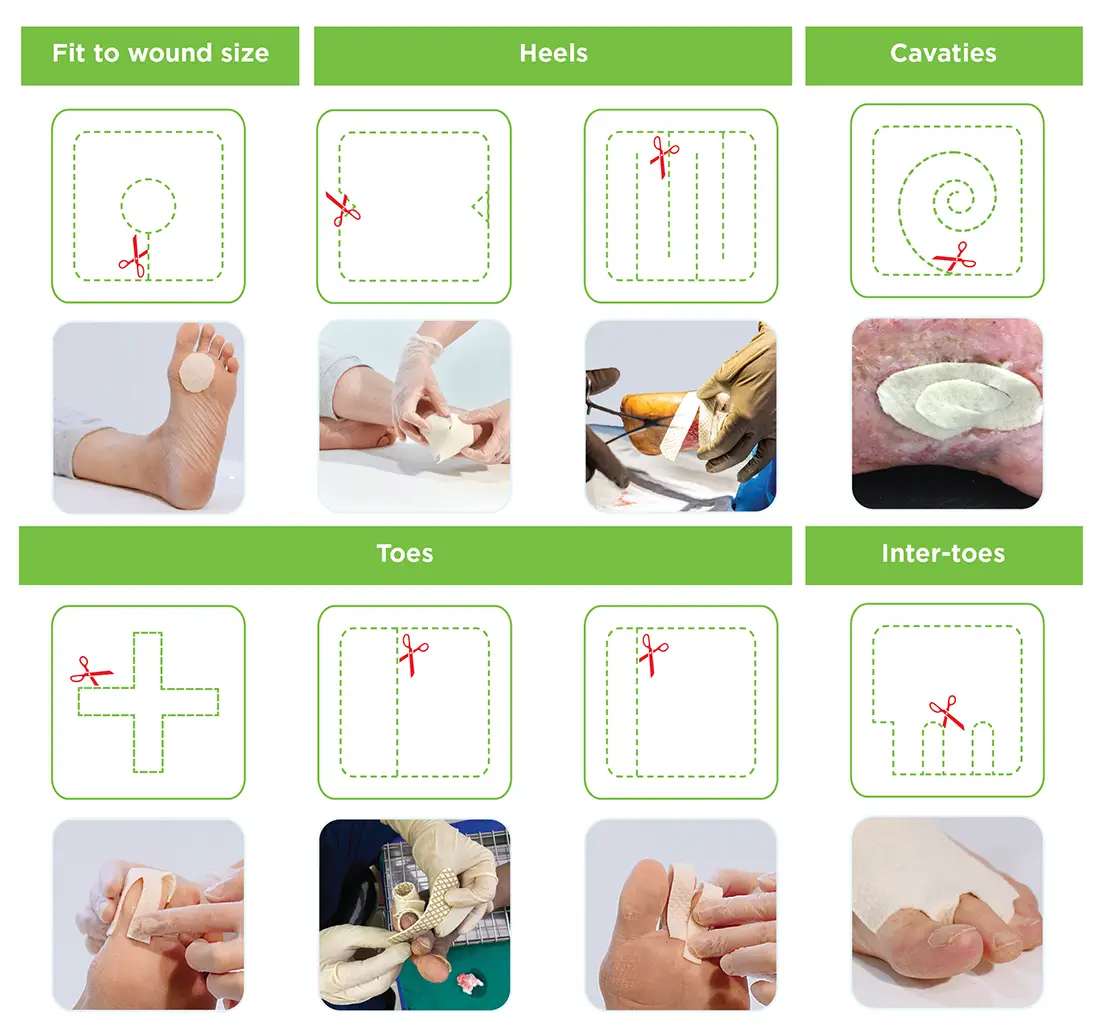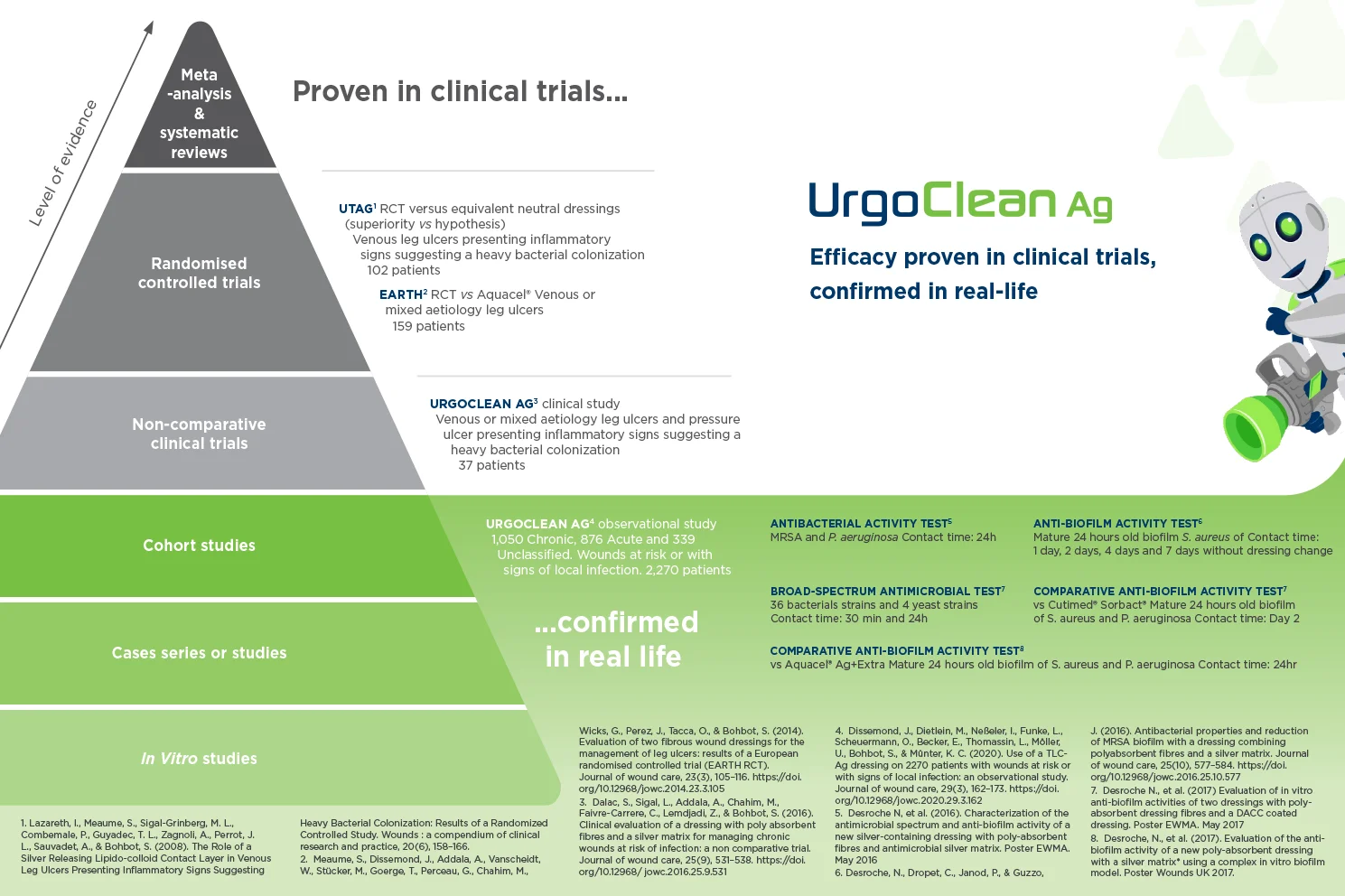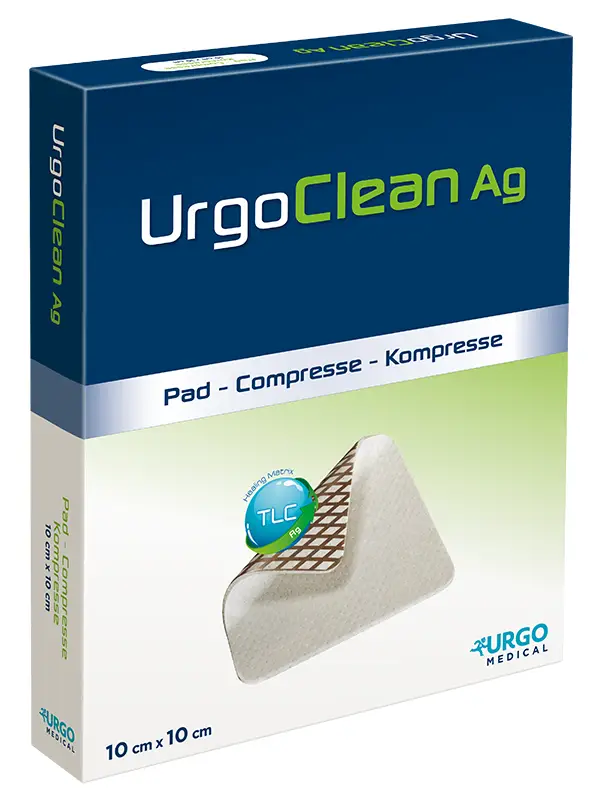

THE ONLY ANTI-BIOFILM SILVER DRESSING THAT PROVIDES COMPLETE & CONTINUOUS CLEANING ACTION IN THE WOUND
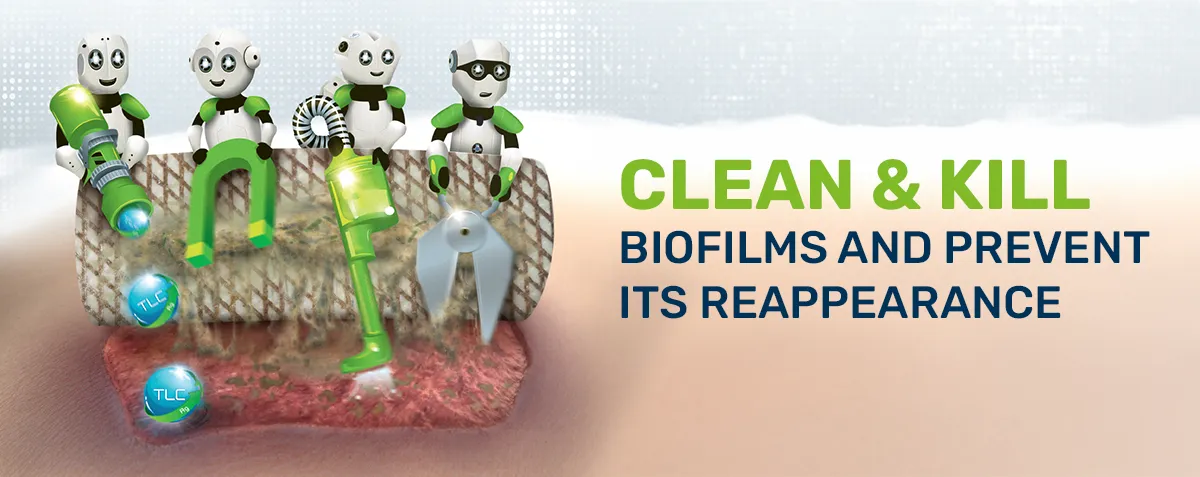
For wounds at risk or with signs of local infection, from the debridement stage
Fast and effective antimicrobial action5
Destroys, removes and prevents biofilm reappearance1, 5
Complete and continuous cleaning action to remove slough exudate and bacterial residues6, 11
Clinically proven complete cleaning action
- UrgoCleanAg provides complete and continuous cleaning action due to its polyabsorbent fibres
- 75% reduction in the number of wounds with heavy exudate
- 62.5% reduction of sloughy tissue and wound debris
- Continuous cleaning action sustained for up to 7 days
- The powerful combined cleaning and antimicrobial actiondestroys, removes biofilms and blocks their reformation for up to 7 days
- UrgoClean Ag reduces 99.99% biofilms population in just 24h1

UrgoClean Ag
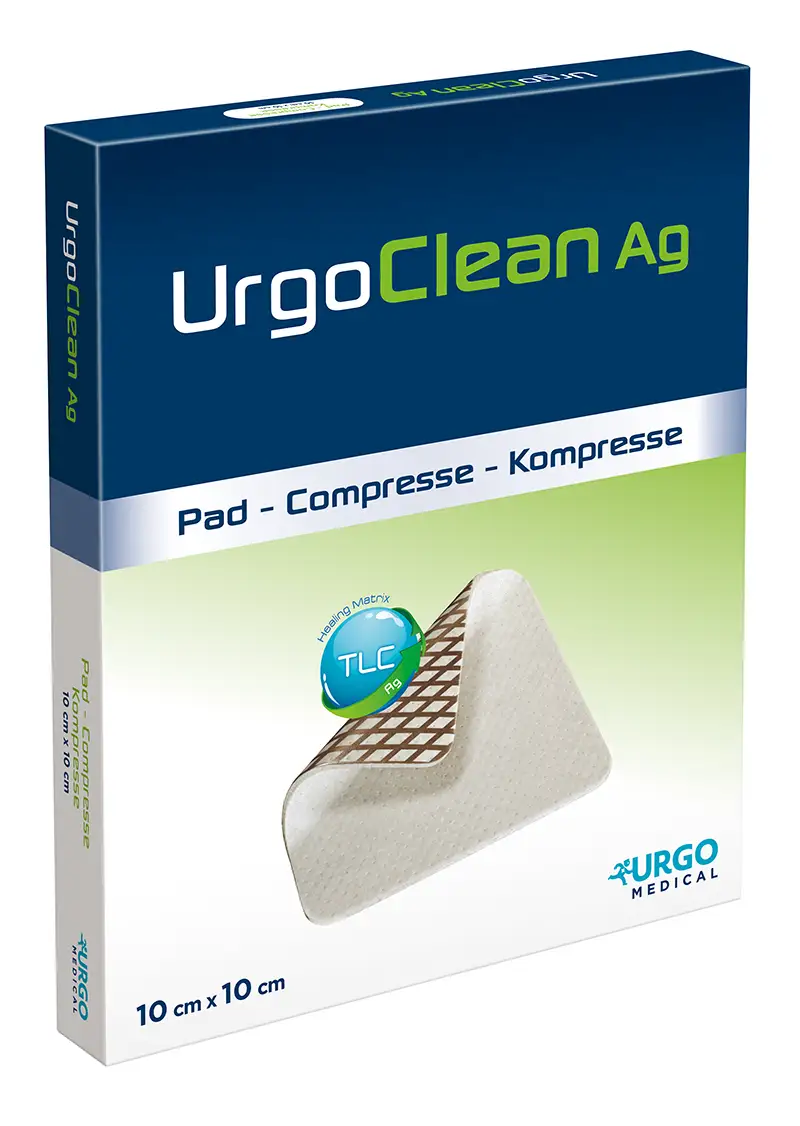
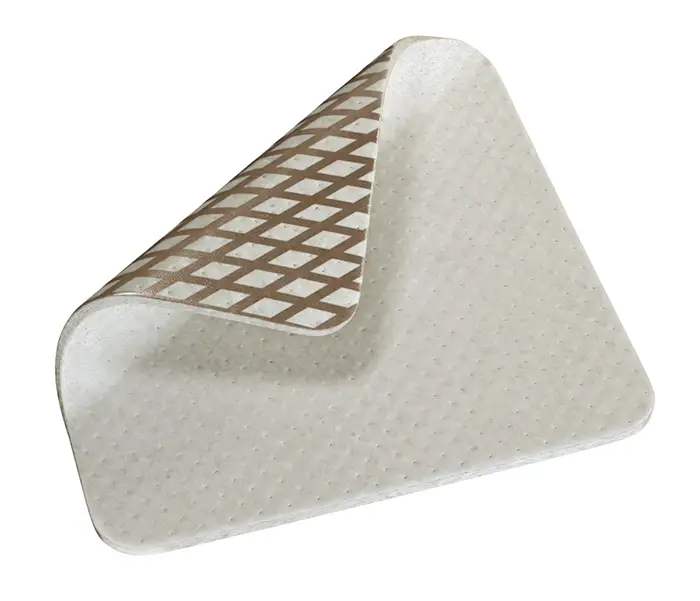
A sterile, non-woven pad composed of hydro-desloughing, polyabsorbent fibres coated with TLC‑Ag
Urgo Ag Range Contact Form
References
- Percival S. L. (2018). Restoring balance: biofilms and wound dressings. Journal of wound care, 27(2), 102-113. https://doi.org/10.12968/jowc.2018.27.2.102
- Desroche N. et al. (2017). Comparison of in vitro anti-biofilm activities of a new poly-absorbent dressing with a silver matrix and a silver containing CMC dressing. Poster EWMA. May, 2017
- Desroche N, et al. (2016). Characterization of the antimicrobial spectrum and anti-biofilm activity of a new silver-containing dressing with poly-absorbent fibres and antimicrobial silver matrix. Poster EWMA. May 2016
- Desroche N., et al. (2017) Evaluation of in vitro anti-biofilm activities of two dressings with poly-absorbent dressing fibres and a DACC coated dressing. Poster EWMA. May 2017
- Percival, S. L., & Suleman, L. (2015). Slough and biofilm: removal of barriers to wound healing by desloughing. Journal of wound care, 24(11), 498-510. https://doi.org/10.12968/jowc.2015.24.11.498
- Dissemond, J., Dietlein, M., Neßeler, I., Funke, L., Scheuermann, O., Becker, E., Thomassin, L., Möller, U., Bohbot, S., & Münter, K. C. (2020). Use of a TLC-Ag dressing on 2270 patients with wounds at risk or with signs of local infection: an observational study. Journal of wound care, 29(3), 162-173. https://doi.org/10.12968/jowc.2020.29.3.162
- Meaume S, Dissemond J, Addala A, et al. Evaluation of two fibrous wound dressings for the management of leg ulcers: results of a European randomised controlled trial (EARTH RCT). J Wound Care. 2014;23(3):105-116. doi:10.12968/jowc.2014.23.3.105
- Kelly J, McGrath A, Wildman S. UrgoClean: a new dressing for desloughing exuding wounds. Br J Community Nurs. 2013;Suppl:S42-S49. doi:10.12968/bjcn.2013.18.sup6.s42
- Study no.S/2003 007/BIOalternatives
- Benbow M, Iosson G. A clinical evaluation of Urgotul to treat acute and chronic wounds. Br J Nurs. 2004;13(2):105-109. doi:10.12968/bjon.2004.13.2.12042
- Dalac S., Sigal L., Addala A., et al Clinical evaluation of a dressing with poly absorbent fibres and a silver matrix for managing chronic wounds at risk of infection: a non comparative trial. J Wound Care, Vol 25, No 9, September 2016
Page updated on 20 May 2024
